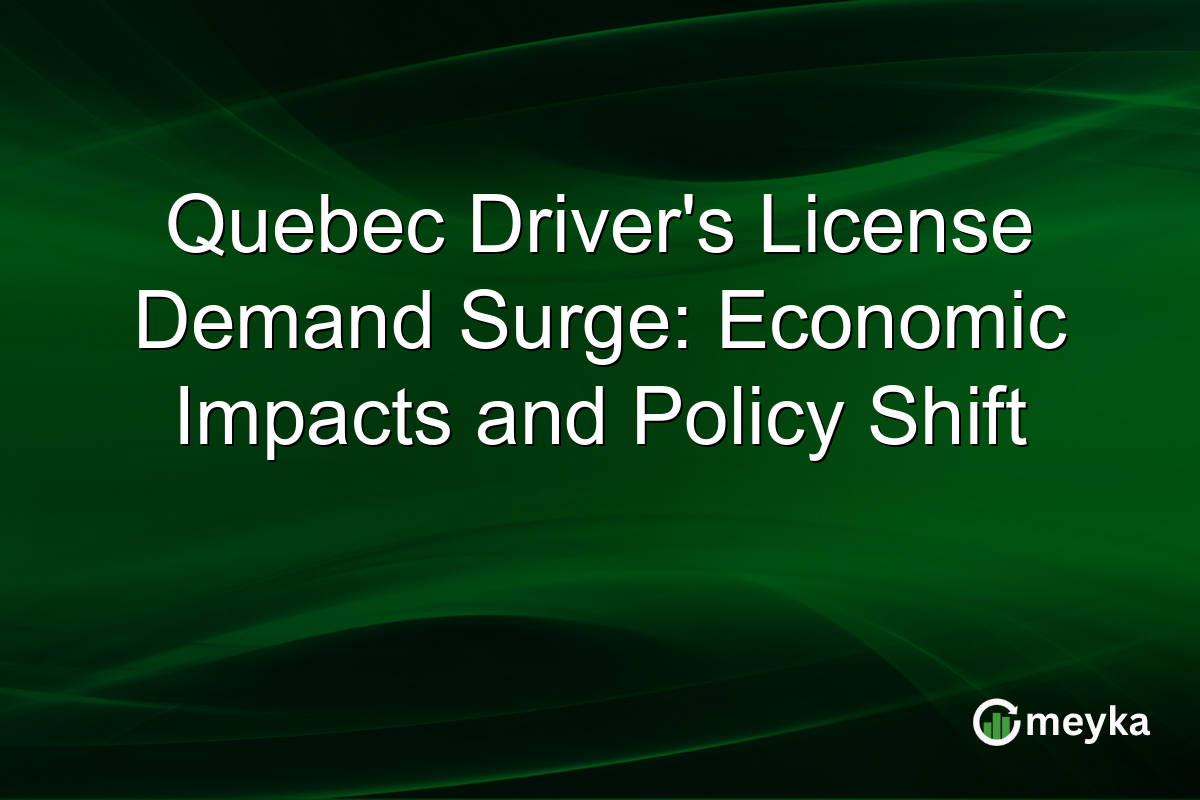Quebec Driver’s License Demand Surge: Economic Impacts and Policy Shift
Quebec is witnessing a significant surge in demand for driver’s licenses, reshaping economic dynamics and policy frameworks. Recent statistics reveal a 15% increase in applications compared to last year. This rapid rise is prompting authorities to implement strategic policies to manage the influx efficiently. The changes not only address the immediate demand but also hold potential long-term economic implications for Quebec.
Surge in Demand for Quebec Driver’s Licenses
The demand for Quebec driver’s licenses has skyrocketed. Reports indicate a 15% year-over-year surge in applications. Experts attribute this increase to a combination of economic recovery post-pandemic and a growing population. As more citizens seek mobility, the importance of securing a driver’s license becomes crucial for daily commutes and job opportunities. This trend reflects broader societal shifts toward increased car ownership and mobility within the province.
Economic Impacts of Increased Demand
The surge in driver’s license applications has notable economic effects. It boosts sectors like automotive sales, insurance, and driving schools. Automotive industry reports suggest a 10% rise in car sales in Quebec linked to this demand. This uptick underscores the direct connection between driver mobility and economic activity. Additionally, increased mobility can lead to expanded job opportunities, particularly in underserved areas.
Policy Shifts to Manage Licensing Demand
In response to the surge, Quebec authorities are revamping their driver’s license policies. The Société de l’assurance automobile du Québec (SAAQ) is increasing service hours and streamlining processes to handle the application backlog efficiently. New policies also include digital enhancements for easier access to services. These changes aim to provide a seamless experience, ensuring that the increased demand does not compromise service quality.
Long-term Implications for Local Economies
The ripple effects of these changes extend into local economies. By facilitating greater access to driver’s licenses, we see potential growth in local businesses and commuter corridors. Investments in public infrastructure may increase as more individuals gain mobility. With a focus on enhancing service efficiency, Quebec is positioning itself to support future economic resilience and growth. Furthermore, comprehensive policy updates could serve as a model for other provinces facing similar demand peaks.
Final Thoughts
This surge in demand for Quebec driver’s licenses highlights essential shifts in mobility and economic growth. As government policies evolve to meet these needs, the positive impacts on local economies become evident. By prioritizing streamlined processes, the region stands to enhance its economic viability while ensuring citizens’ needs are met. As Quebec navigates these changes, the focus remains on sustaining long-term benefits and setting precedents for effective policy adaptations. This approach not only supports current demands but also lays the groundwork for future advancements in infrastructure and mobility strategy.
FAQs
The increase is due to the economic recovery post-pandemic and a growing population. People require mobility for various purposes, driving the demand.
Increased demand stimulates sectors like automotive sales and insurance, expanding job opportunities and boosting overall economic activity in the region.
The SAAQ is streamlining processes, increasing service hours, and introducing digital solutions to efficiently manage the influx of applications for driver’s licenses.
Increased mobility can lead to economic growth, improved public infrastructure, and enhanced job opportunities. It positions Quebec for sustained economic resilience.
The changes provide a more seamless, efficient experience with quicker processing times, ensuring that increased demand does not affect service quality.
Disclaimer:
The content shared by Meyka AI PTY LTD is solely for research and informational purposes. Meyka is not a financial advisory service, and the information provided should not be considered investment or trading advice.






